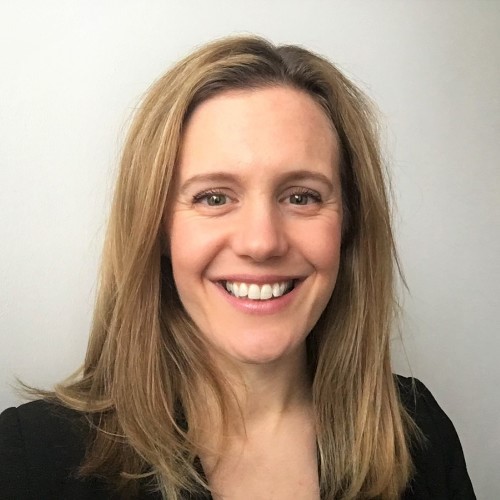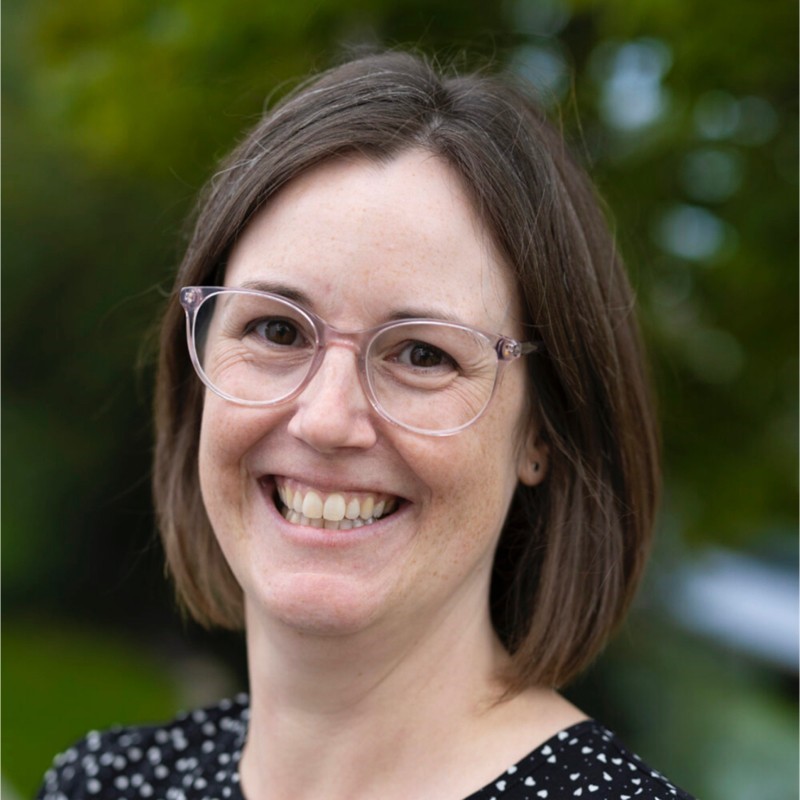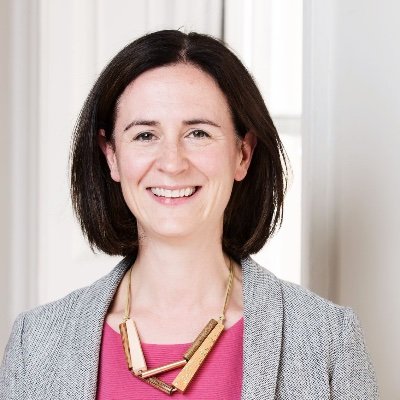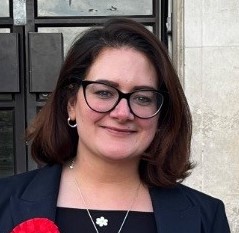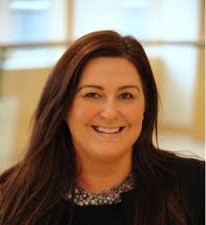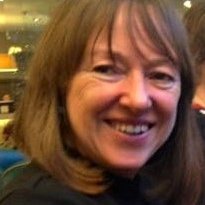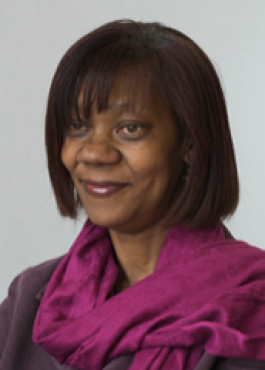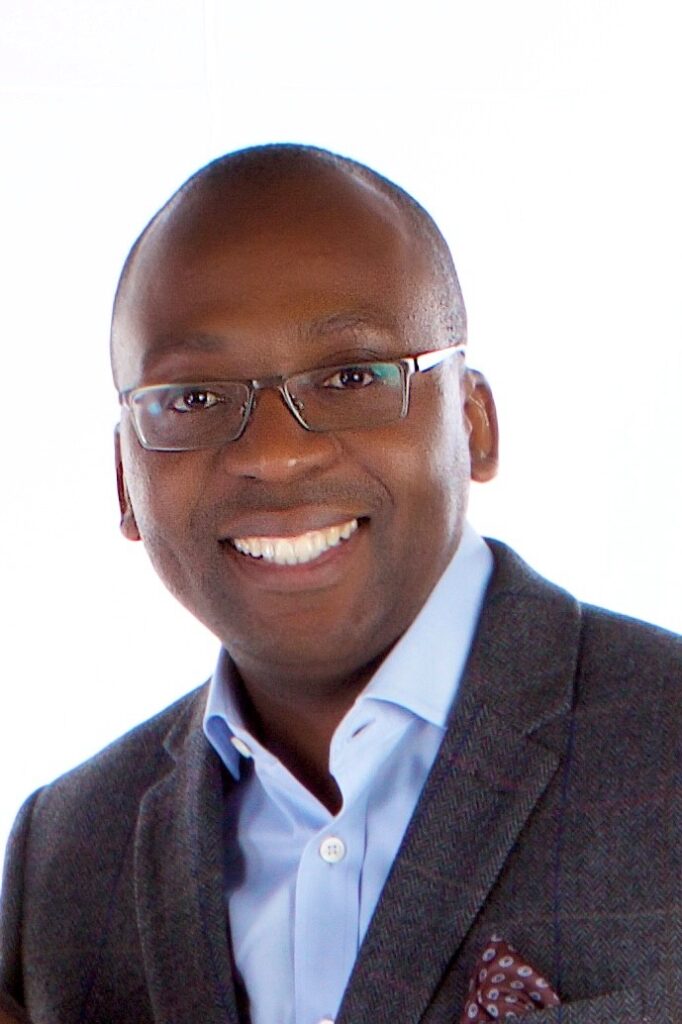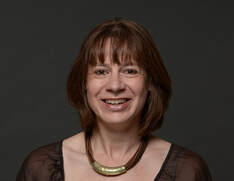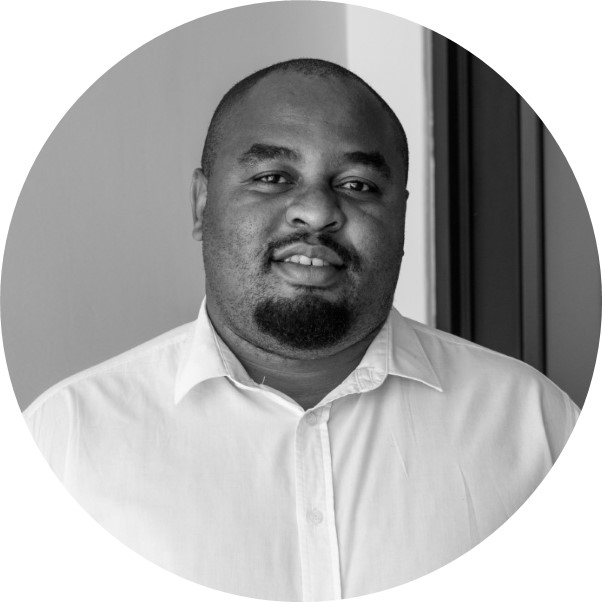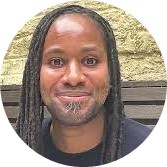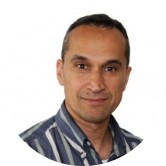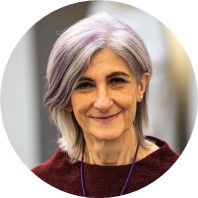EDI Tools: Top down or bottom up?
EDICa hosted a seminar showcasing the Progression Framework, and the EDI Cube – two tools for assessing and implementing change in equity, diversity & inclusion.
Published : 29/11/2023
Home » EDI Tools: Top down or bottom up?
Many organisations have developed or use ‘tools’ to assess and implement change in equity, diversity and inclusion. These take many forms and serve different purposes. EDICa hosted a seminar featuring Karen Grayson from the Royal Academy of Engineering (RAE) presenting their Diversity & Inclusion Progression Framework (https://raeng.org.uk/policy-and-resou…) and Dr Sarah Higginson from the Centre for Research into Energy Demand Solutions (CREDS) presenting the EDI Cube. (https://www.creds.ac.uk/the-edi-cube/). Dr Clay Magill, Associate Professor in Biogeochemistry at the Lyell Centre for Earth & Marine Science & Technology, and EDICa’s Lead on Neurodiversity, chaired the discussion.
The Diversity & Inclusion Progression Framework

Karen led off with an overview of the Diversity and Inclusion Progression Framework. Developed in partnership with the Science Council, the Framework was developed to help professional bodies plan and track progress on diversity and inclusion across the key areas of their activity – ranging from governance and leadership, to membership, meetings and events, outreach, employment, and monitoring and measuring. The tool provides a framework to self-evaluate and to benchmark. Importantly, it is intended to inspire and improve practices; structure conversations; identify strengths and areas for development and facilitate conversations with other organisations in the sector. Developed in 2017, the Framework has been well received with strong uptake across science and engineering professional bodies.
The EDI Cube
Sarah then introduced the EDI Cube – a tool that can be used in project design or evaluation or teaching. Conceptualised as a cube, the tool draws together the different ways of approaching EDI, highlighting their interactions.
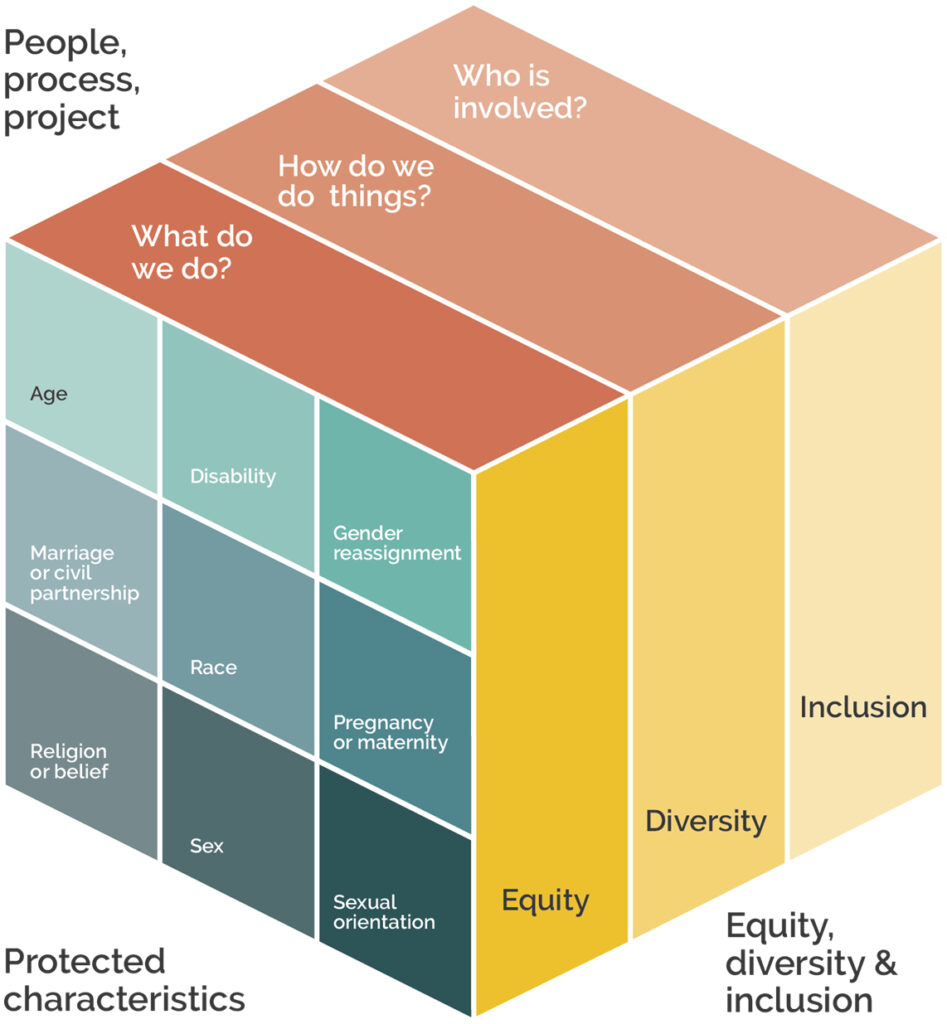
The top face – the three Ps – is about people, process and project. It encourages users to think about: What do we do? How do we do things? And who is involved? The second face is divided into three sections: Equity, Diversity and Inclusion. The third face shows the nine protected characteristics described in the Equality Act of 2010: Age, disability, gender reassignment, marriage and civil partnership, pregnancy and maternity, race, religion or belief, sex, and sexual orientation.
Sarah highlighted the importance of considering Equity, not Equality; while “equality” means that everyone gets the same opportunity in the same way, “equity” means that opportunities are shaped to fit the needs of the individual. She also stressed the importance of considering intersectionality, recognising the multiple, overlapping identities that impact on people’s experience and underpin structural inequalities.
Top Down or Bottom Up?
Questions focused on the transferability of the tools to different settings and their value in stimulating conversations and leveraging action to do better. The panellists also discussed the mutual value of top down (institutional) and bottom up (community/project) initiatives, especially in multi-institutional, interdisciplinary programmes where it’s important to achieve things that HR processes and practices cannot do.
Get in touch and share resources
To hear directly from the speakers, and to learn more, please catch up with the recording online here. The version with BSL can be found here. Do contact the speakers who would be delighted to share their insights more. And, please share with EDICa tools of the sort featured in the webinar that you have developed or are using. One of the key aims of our Caucus is to act as a focal point to share resources and initiatives across the research and innovation ecosystem.
— Dr Catherine Souch, EDICa’s Engagement Lead and Head of Research and Higher Education at the Royal Geographical Society,
Other related resources
EDICa hosts a regular blog and seminars, as well as collecting a library of resources of equality, diversity & inclusion practices in research & innovation.
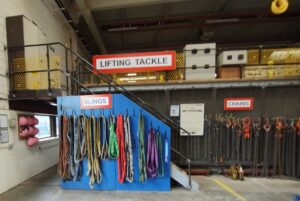
Report on recommendations for improving support for managing menstrual health
Date: 10th June 2024
Report
Report on “Recommendations for improving support for researchers
managing menstrual health”
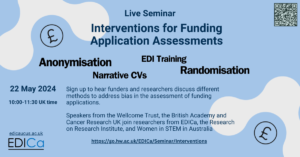
Interventions Seminar Recording
Date: 22nd May 2024
In May EDICa hosted a panel of funder representatives and researchers to discuss alternative methods of assessing funding applications. Access the recording here.

Peer Review Bias in Funding
Date: 4th April 2024
EDICa publishes a report on Peer Review Bias in Funding. Read some highlights.



